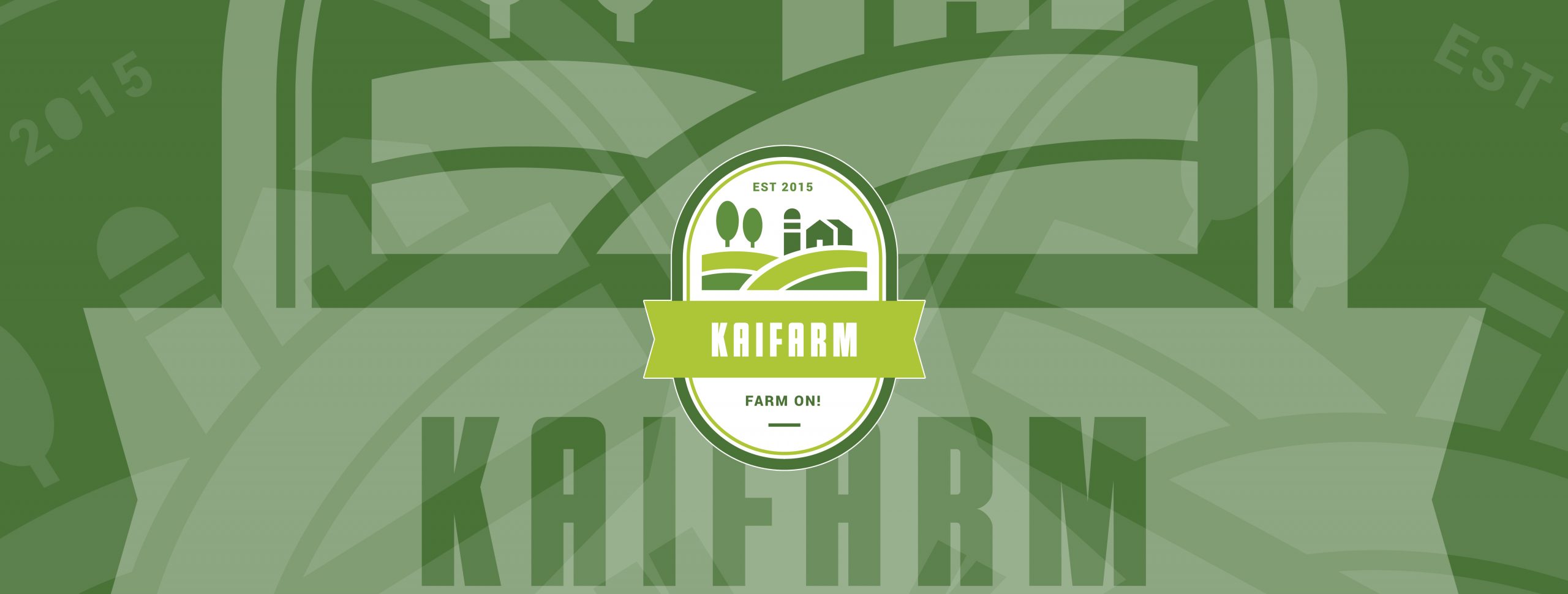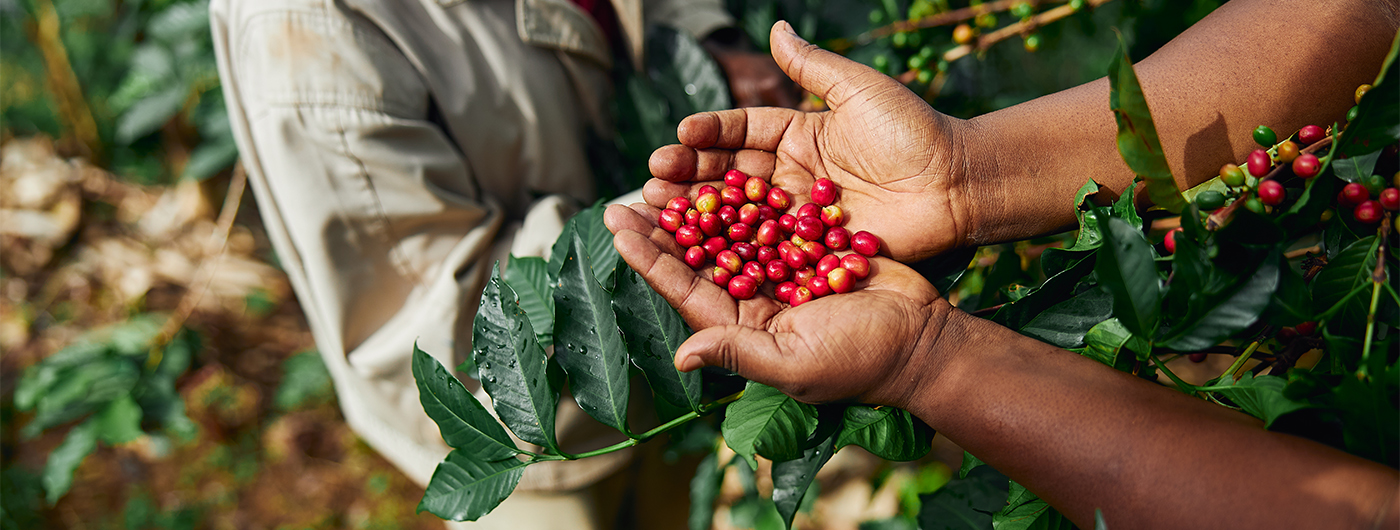

A Deep-Dive into Minh Thien Group’s 300-hectare Cocoa Cultivation in Vietnam
The cocoa industry is globally revered not just for the production of a key ingredient in chocolates, but also for its potential to uplift local economies, especially in the Global South. One such company helping shape the future of the industry in Vietnam is Minh Thien Group, where KAI Farm holds a significant 36% stake. A special focus of our analysis today will be on the group’s extensive 300-hectare cocoa plantation in Vietnam.
VISION
Minh Thien Group’s vision is to nurture Vietnam’s potential as a quality cocoa producer and, in doing so, transform the socio-economic fabric of local communities. The company believes that the country’s tropical climate and abundant rainfall provide the perfect setting for cocoa cultivation. By leveraging sustainable farming techniques and technology, Minh Thien Group hopes to make Vietnam a significant contributor to the global cocoa supply chain.
Minh Thien Group has a multidimensional vision for its cocoa plantation that encompasses both economic and social objectives. It aims to create a thriving cocoa ecosystem in Vietnam that benefits all stakeholders involved, from the local farmers to the global cocoa consumers.
Economic Development: The company’s primary vision is to make Vietnam a substantial player in the global cocoa industry. Given the country’s favorable climate and fertile soils, they believe that Vietnam has significant potential to cultivate high-quality cocoa. This endeavor aims not just to boost the nation’s economy but also to diversify its agricultural exports.
Local Community Empowerment: Minh Thien Group is deeply aware of the impact agricultural businesses can have on local communities. Their vision extends to improving the living conditions of local farmers by providing them with a stable income source, thus contributing to the local economy. They plan to achieve this by creating a cooperative cultivation model that involves training farmers in modern and sustainable farming techniques, providing them with high-quality cocoa seedlings, and guaranteeing a buy-back of their produce.
Sustainability: Another key aspect of the Group’s vision is sustainability. They are committed to environmentally friendly practices and preserving the biodiversity of the region. Their approach includes sustainable water management, organic farming techniques, and minimal use of chemical fertilizers and pesticides. The goal is to create a balance between economic development and environmental preservation.
Innovation and Quality: Minh Thien Group is also invested in utilizing cutting-edge agricultural technologies to maximize yield and improve the quality of their cocoa beans. They aspire to produce Vietnamese cocoa that meets the highest international standards and becomes recognized worldwide for its quality and unique flavor profile.
Education and Research: Lastly, the group envisages establishing research and development facilities to continuously innovate and adapt to the ever-changing agricultural landscape. They also aim to collaborate with educational institutions to ensure knowledge transfer and build a future-ready farming community.
In summary, Minh Thien Group’s vision for their cocoa plantation is a blend of economic prosperity, community development, environmental sustainability, and continuous learning. They are determined to create a model cocoa plantation that could serve as a blueprint for similar initiatives, both within Vietnam and globally.
EFFICIENCY
Since the inception of the 300-hectare cocoa plantation, Minh Thien Group has utilized modern farming practices and technological advancements to streamline operations and maximize output. From the use of high-yield and disease-resistant cocoa varieties to the implementation of drip irrigation systems, the company has significantly increased its efficiency. Further, strategic planning regarding crop rotation and intercropping has allowed it to maintain soil fertility and ensure consistent production.
Efficiency in agriculture is about maximizing output while minimizing inputs and maintaining the health of the land. At Minh Thien Group, they’ve incorporated a combination of traditional knowledge, advanced technologies, and innovative farming practices to enhance the efficiency of their cocoa cultivation.
Use of High-Yield Cocoa Varieties: A significant factor contributing to their efficiency is the use of high-yield cocoa varieties that are adapted to the local climate and soil conditions. This strategic selection of crop varieties enhances productivity per hectare and ensures the farm’s competitiveness.
Technological Integration: Minh Thien Group has incorporated state-of-the-art technology into their farming practices. For instance, they use a drip irrigation system which optimizes water usage by providing precise water quantities directly to the plant’s roots. This not only conserves water but also improves the health and yield of the plants.
Pest and Disease Management: Efficient handling of pests and diseases is crucial in a cocoa plantation. Minh Thien Group has implemented an Integrated Pest Management (IPM) system that combines various environmentally friendly strategies to keep pests and diseases in check. This not only protects the cocoa plants but also reduces the reliance on chemical pesticides, contributing to sustainability.
Soil Fertility Management: Minh Thien Group uses crop rotation and intercropping techniques to maintain soil fertility and prevent diseases. Crop rotation involves changing the type of crop planted on a particular piece of land from season to season, which helps in replenishing soil nutrients, breaking disease cycles, and improving soil structure. Intercropping, or growing different crops together, also improves soil fertility and provides a natural pest control mechanism.
Supply Chain Optimization: Beyond the farm, efficiency extends to the supply chain. The company has streamlined its supply chain processes to ensure the quick and safe transportation of cocoa beans from the farm to the processing facilities and ultimately to the market. This helps in reducing losses and maintaining the high quality of their beans.
Training and Skill Development: Lastly, efficiency is about human resources too. Minh Thien Group invests in regular training for its farmers to ensure they have the skills and knowledge to implement the best farming practices. This enhances their productivity and ensures the plantation’s long-term success.
In essence, through a blend of advanced farming practices, technology, and human resource development, Minh Thien Group has significantly enhanced the efficiency of its cocoa plantation, setting a commendable example for other players in the industry.
SUSTAINABLE AGRICULTURE
Minh Thien Group has a robust commitment to sustainable farming. It follows a model of agroforestry, which combines agricultural and forestry technologies to create more diverse, productive, profitable, healthy, and sustainable land-use systems. The group ensures minimal use of chemical pesticides and fertilizers, and instead employs natural pest management and organic composting methods. It’s also engaged in regular training programs for local farmers to raise awareness about sustainable farming practices and their long-term benefits.
Minh Thien Group’s commitment to sustainable agriculture stems from a deep understanding of the delicate balance between human needs and the environment’s preservation. Their practices are centered around eco-friendly farming methods and fostering biodiversity.
Agroforestry: A cornerstone of their sustainable approach is the practice of agroforestry. This system combines crops and trees in the same unit of land, enhancing biodiversity, reducing soil erosion, and promoting a more sustainable land-use system. The trees provide shade for the cocoa trees, a necessary factor for their growth, while also offering habitats for beneficial insects and other wildlife.
Organic Farming: Minh Thien Group adopts organic farming methods, shunning harmful synthetic pesticides and fertilizers. They use natural pest control methods and organic compost for nourishing the soil. This practice maintains the soil’s health, reduces pollution, and ensures the production of high-quality, organic cocoa.
Water Management: Sustainable water management is crucial to the longevity of the plantation. They’ve implemented a drip irrigation system that precisely controls the amount of water delivered to each plant, minimizing water waste and ensuring the plants get exactly what they need for optimal growth.
Soil Conservation: Techniques like crop rotation and intercropping are used to maintain soil health, prevent erosion, and control pests and diseases. These techniques also enhance soil fertility and productivity, leading to improved crop yields.
Sustainable Harvesting: Harvesting is done manually, ensuring the highest quality of cocoa beans and causing minimal damage to the plants. It also provides local employment opportunities, thus contributing to the local economy.
Climate Change Mitigation: The company is mindful of its role in climate change mitigation. By maintaining a high level of tree coverage in their plantation, they help to sequester carbon dioxide, reducing the greenhouse effect.
Capacity Building: Sustainable agriculture also means building the capacity of local farmers. The group organizes regular training programs to educate farmers about the benefits of sustainable farming practices and how to implement them effectively.
By adopting these practices, Minh Thien Group doesn’t merely aim for short-term productivity. Instead, they are investing in the long-term health of their land, the quality of their cocoa, and the wellbeing of the local community and the wider environment. Their approach demonstrates that sustainability in agriculture is both feasible and beneficial for business, people, and the planet.
OPPORTUNITIES
Vietnam, traditionally a leading global exporter of robusta coffee, has an untapped potential for cocoa production. The burgeoning global demand for cocoa, along with the increasing interest in single-origin chocolates, provides an opportunity for Vietnam, and in turn, Minh Thien Group, to carve out a niche in this sector. Additionally, international initiatives supporting sustainable cocoa production could also offer funding and networking opportunities for the company.
Global Demand for Cocoa: The rising global demand for cocoa, especially from emerging markets, offers an immense opportunity for Minh Thien Group to expand its reach. Increasing consumption of chocolate and other cocoa-based products in countries with growing middle classes like China and India is leading to a significant surge in demand for high-quality cocoa.
Single-Origin Chocolates: The growing interest in single-origin chocolates, which are made from cocoa beans from a specific region or even a single farm, presents a unique opportunity. With its 300-hectare cocoa plantation, Minh Thien Group has the potential to produce unique single-origin chocolates with distinct Vietnamese characteristics.
Sustainable and Fair-Trade Markets: There is a growing trend towards sustainable and fair-trade products in the global market. Consumers are willing to pay a premium for products that are environmentally friendly and ethically produced. Minh Thien Group, with its commitment to sustainable farming and community development, could tap into this niche market for better profit margins.
Digital Agriculture Technologies: Technological advancements in the agricultural sector offer new opportunities to improve yield and reduce costs. Digital tools can enhance farm management, improve yield predictions, and enable more precise application of water and nutrients, all of which could improve the profitability of Minh Thien Group’s plantation.
Government Initiatives: Vietnam’s government has been promoting the agricultural sector and may provide subsidies or other types of support. These initiatives could offer significant financial and infrastructural benefits to Minh Thien Group’s cocoa plantation.
International Collaborations: The global nature of the cocoa industry allows for plenty of international collaboration. There are numerous global initiatives aimed at promoting sustainable cocoa production that Minh Thien Group could join. These networks could offer opportunities for funding, knowledge sharing, and establishing new marketing channels.
Value-Added Cocoa Products: Besides selling raw cocoa beans, there is an opportunity to venture into the production of value-added cocoa products such as cocoa butter, cocoa powder, and chocolate. This diversification could open up new revenue streams for the group.
In essence, while the cocoa industry is rife with challenges, it also offers numerous opportunities for companies like Minh Thien Group that are willing to innovate, adapt, and embrace sustainable and fair-trade practices.
Challenges
Despite the vast opportunities, several challenges stand in the way. Most prominent is the threat of climate change, which could significantly impact cocoa yields. Other challenges include pest and disease management, and the inherent difficulty of implementing sustainable practices on a large scale. Also, due to limited domestic consumption of cocoa, the company is highly reliant on the global cocoa market, which is highly volatile.
Climate Change: Cocoa trees require a specific set of conditions to thrive, including a constant warm temperature, high humidity, and plentiful rainfall. Changes in weather patterns and increases in extreme weather events due to climate change could significantly impact cocoa yields and the quality of cocoa beans.
Pest and Disease Management: Cocoa trees are susceptible to various pests and diseases, which can devastate plantations. Despite the use of integrated pest management systems, controlling these threats organically on a large scale can be quite challenging.
Implementing Sustainable Practices: While sustainable farming practices are beneficial in the long run, they can be challenging to implement initially. Transitioning from traditional methods requires significant investment in training, equipment, and often a temporary reduction in yield until the new methods are fully operational.
Market Volatility: The global cocoa market can be highly volatile, with prices subject to fluctuations due to changes in supply and demand. As Minh Thien Group’s production is aimed mainly at the export market, it is susceptible to these price swings, which can affect profitability.
Limited Domestic Consumption: Vietnam has a relatively low domestic consumption of cocoa-based products, which limits the group’s ability to diversify its market base and makes it heavily reliant on export markets.
Logistical Challenges: The transportation of cocoa from the farm to processing facilities and then to international markets can pose logistical challenges. Delays or issues in transportation can lead to quality degradation of the cocoa beans and potential financial losses.
Access to Quality Planting Materials: For new and expanding cocoa plantations, access to high-quality, disease-resistant cocoa seedlings can be a significant challenge. It requires close ties with research institutions or other providers of these materials.
Despite these challenges, Minh Thien Group’s commitment to sustainable farming, its strategic vision, and its efficient farming practices place it in a strong position to navigate these issues. The key to overcoming these obstacles will be continuous adaptation, innovation, and a sustained commitment to its core values of sustainable and community-oriented farming.
In conclusion, the 300-hectare cocoa plantation project undertaken by Minh Thien Group holds significant promise for the future. It is a demonstration of how sustainability, technological advancement, and a strong vision can pave the way for success in agricultural endeavors. Nevertheless, the challenges ahead require strategic planning and continuous commitment. It’s a journey that KAI Farm, as a key stakeholder, will be watching closely.
Thuan Nguyen – Partnership Director
KAIFarm Team®


